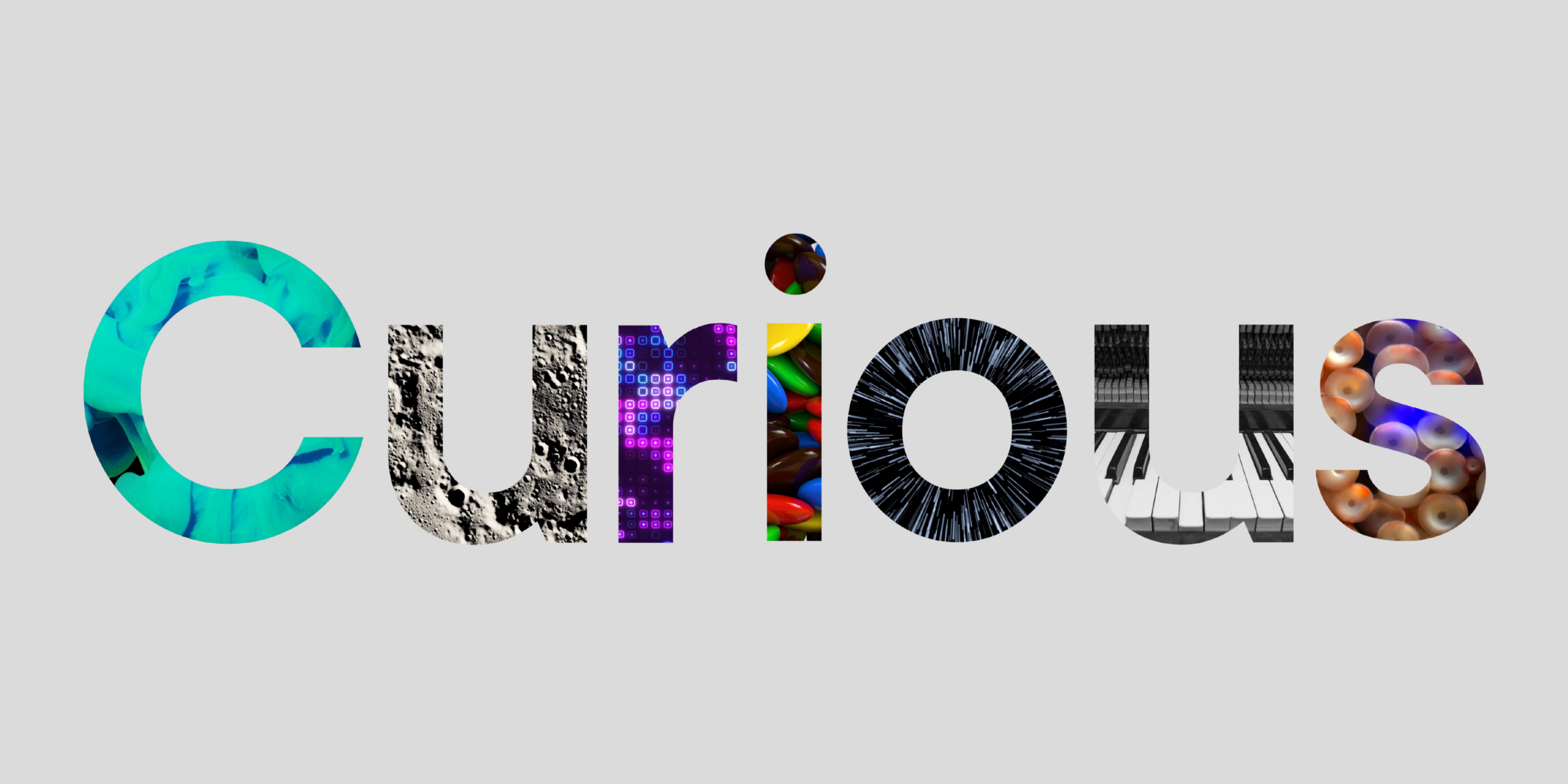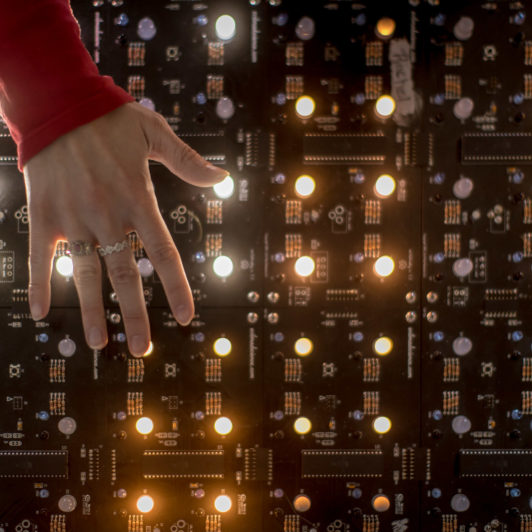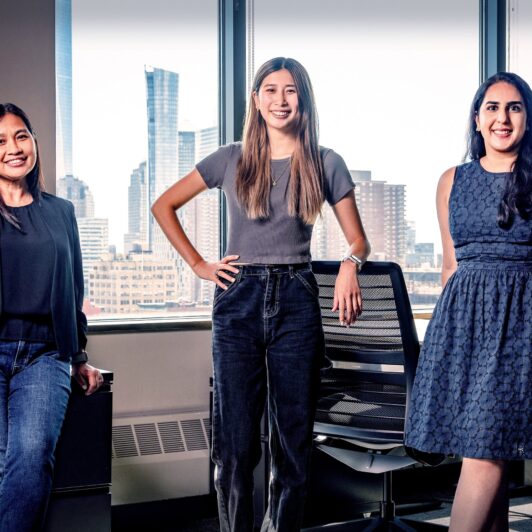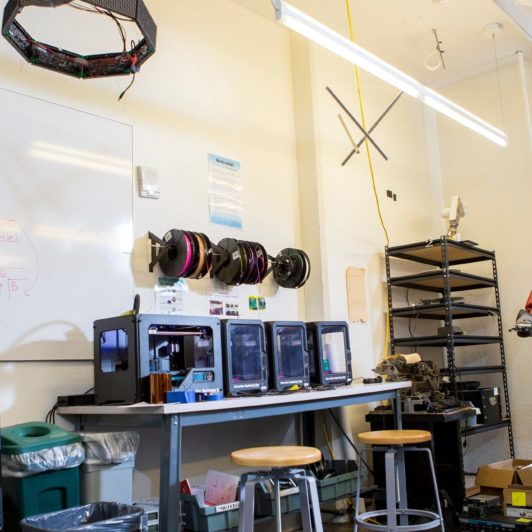“Research,” wrote author Zora Neale Hurston, “is formalized curiosity. It is poking and prying with a purpose.” The basis of the scientific method, curiosity is the cornerstone of the work we do at Two Sigma, not to mention a source of great fun.
Since our founding more than 20 years ago, Two Sigma has developed a strong culture of curiosity that includes—but certainly isn’t limited to—areas of knowledge that aren’t even directly related to our jobs. It’s why we have Hacker Labs, offer dozens of classes (from technical learning paths to how to make dumplings), and closely partner with the academic community in many different fields, for example.
Asked what advice she’d give a software engineer who’s just starting her career, Ris Sawyer, who manages Two Sigma’s simulation and analysis platform, answered, “Ask more questions than seems reasonable.” In that spirit, we asked a group of Two Sigma colleagues to share how they think about curiosity in their daily lives: how it applies to their work, how to nurture it, and what they’ve been ruminating about lately. Perhaps their perspectives will inspire you to take your own curiosity in a new direction.
What’s your favorite random fact?
Leah, engineering manager—I’m not sure I have a favorite random fact; there are just so many great facts in the world. I do like the fact that the process of mixing lye and fat is called saponification (sapo is Latin for soap). How do you suppose humans first discovered this process and the many uses of soap?! 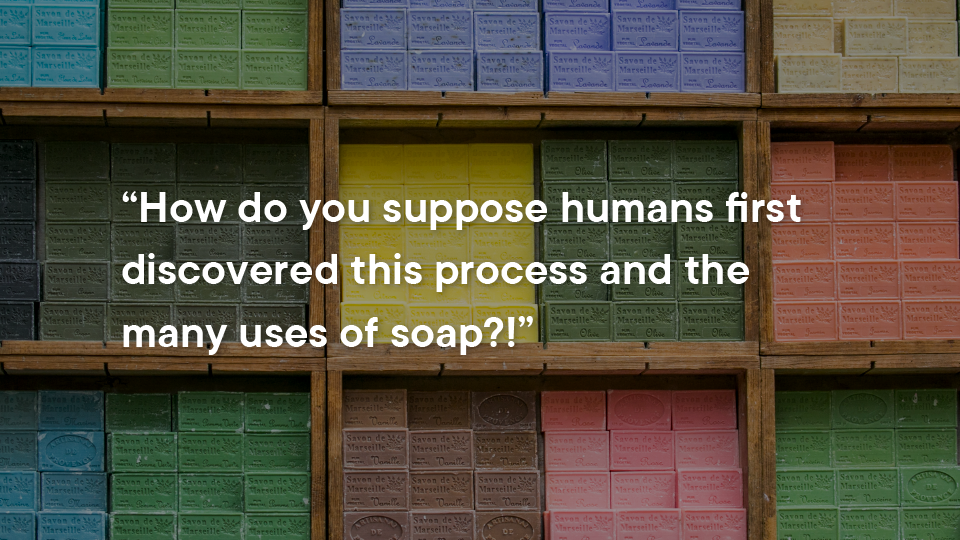
Christian, scoring and simulation framework software engineer—My favorite random fact is that even if we travel at 1% the speed of light, it would take more than 400 years to reach the nearest earth-like planet.
Alexa, Venn growth & strategy operations—The national animal of Scotland is a unicorn. Officially.
Peter, quantitative researcher—Frequency Hopping Spread Spectrum, a radio transmission coding scheme used for Bluetooth, was co-invented in the 1940s by the actor Hedy Lamarr. She was inspired by a system for player pianos.
Kayla, data strategist—Disco balls first became popular way before disco. They were seen on dance floors as early as the 1920s and you can even see one if you look close enough in the movie Casablanca.
Satish, chief risk officer—My wife is an Indian classical musician and is now pursuing a PhD in music at the CUNY Graduate Center. Did you know that transcribing a piece of Indian classical music into Western notation vs. Indian notation produces 10x more pages and still doesn’t sound like the original at all? Sometimes, you can convey the same information, but you could do so in a very clumsy way when the method you have chosen is unsuited to the purpose or medium. That’s why it is difficult to translate jokes into other languages, for instance.
Dara, HR business partner—Reese’s Pieces are E.T.’s favorite candy, because M&Ms said no! I’ll bet they regretted that decision.
Rachel, Engineering Education program manager—One of my favorite facts is that the flying trapeze was invented by a Frenchman named Jules Léotard. The costume that trapeze artists traditionally wear was, of course, named after him.
What role does curiosity play in your job?
Leah—Seeking new information and perspectives gives me tools to solve the right problems appropriately. Even in common or “well-known” situations I try to stay curious and assume I don’t know everything! People, context and technology change so fast, you have to keep asking questions and learning to stay relevant.
Christian—Curiosity drives me to continuously explore innovative solutions and challenge existing ideas.
Peter—It might sound a little cliché, but curiosity is a driving force behind almost all aspects of my job. Curiosity about what might be possible when developing a new modeling technique, curiosity to dig into data panel inconsistencies, or curiosity and eagerness to learn.
Kayla—My role involves identifying novel ways we can use data to inform our investing decisions. Day-to-day I’m breaking apart different industry data sets to understand how and where the data is made.
Satish—Curiosity plays a role in any job. I cannot see how you can get satisfaction in life if you do not ask questions about things—especially about things you do NOT understand. It is hard, sometimes, but it is always better to have tried and failed rather than never to have tried at all.
Curiosity is how I get perspective—people built telescopes for many years, but no one (except Galileo) thought to either look at or wonder what the mountains on the moon represented—they represented that celestial bodies were most likely just made of stuff that we see around us on the Earth. You cannot discount such perspectives. They shape our lives.
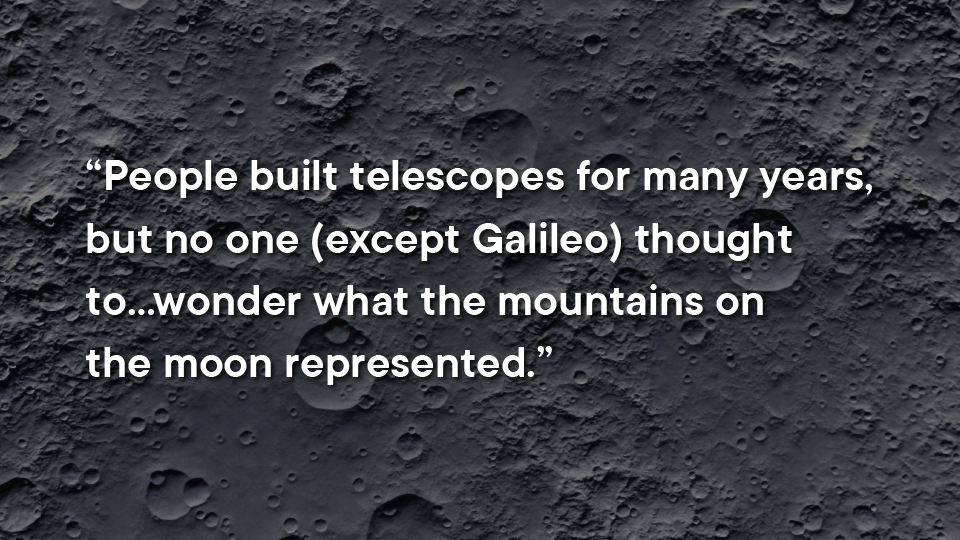
Rachel—Curiosity keeps me open-minded, comfortable not knowing everything, and eager to learn. As a Hacker Lab and Engineering Education coordinator, curiosity helps me improve how I serve my constituents (engineers). When coaching speakers, one of my “superpowers” is being willing to be the least-informed person in the room on a given topic, and using that perspective to help speakers clarify their messages.
What’s the last rabbit-hole you went down?
Leah—I recently found a lovely book about making inks from items in your environment. Some striking colors can be created by blending two very unexpected items. For example, copper scraps and vinegar create a delightful bright turquoise! Now, on my daily walks, I have my eyes peeled for interesting botanicals and items to turn into pigments.
Alexa—While marine life is not my typical subject matter of interest, I recently went down a rabbit-hole related to the lifecycle of an octopus. One of the “Ocean Art 2022 Winning Images” was a photograph of a mother protecting her eggs and the image was so intriguing that I couldn’t help but learn more. Over the course of a month the mother octopus produces 55k+ eggs, not eating or leaving them once to ensure they’re protected. She dies after she releases them and the end yield of her 55,000 eggs is only TWO adult octopus.
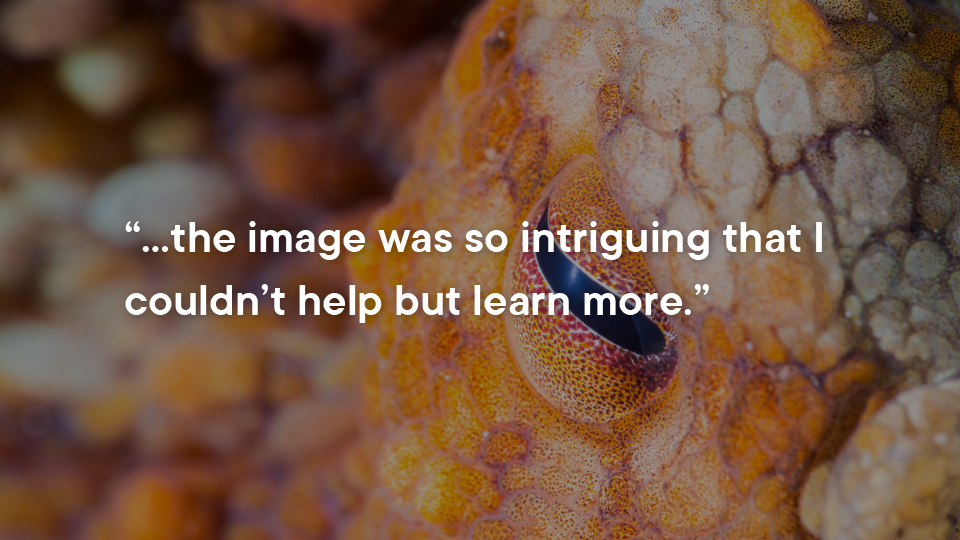
Kayla—There are so many… Personally, I’m really enjoying learning more about contemporary art, so I’ve spent a lot of time trying to understand different styles.
Satish—At work: I’m a physicist by training, but I’m often exposed to other domains as part of my job. For instance, I recently wanted to understand more deeply what engineers call “atomicity” (or what I personally like to think of as a “molecular” event): When you have all the irreducible subcomponents necessary to assemble an event on our platform.
I got a good description from asking someone in my group, and I got a great historical perspective on the topic’s relevance to Two Sigma from talking to one of our long-standing, senior engineering leaders. But I wouldn’t have learnt all this if I just kept my mouth shut.
And at home: In my personal time, I am trying to understand how a hologram stores information. There is strong reason to believe that nature is not what we seem to think it is and that there is less resolution than we think there is. One thought is that space isn’t actually three-dimensional. Consider a hologram, for example—it stores information in a two-dimensional film. I have written a couple of papers on this (in 2022), but I would like to see if there is a way to express the laws of physics in a way that applies to such a hologram.
Dara—I recently saw Hadestown on Broadway. I’ve always liked Greek mythology in theory, but after seeing this show, I wanted to know even more, so I started reading up!
Rachel—I’ve been reading Moonwalking with Einstein, which is about memory training, competitive memorization, and memory palaces–a memorization strategy that traces back to Simonides of Ceos’s “method of loci.”
How can people nurture their curiosity?
Leah—Say “yes” to opportunities, even those with many unknowns, and especially to those that scare you a bit. Jumping into these types of problems teaches you to observe, ask the right questions, and maintain the determination to find a solution.
Christian—People can nurture their curiosity by channeling their inner child. This means keeping an open mind, seeking new information, and questioning everything.
Alexa—As adults, we often miss the opportunity to learn something new because our brains are operating off the shortcuts it has created over time. Taking a conscious moment to turn this autopilot off and approach the world with a sense of wonder* is a great habit to nurture curiosity. I mean, if you go for a run every day along the West Side highway in New York without any curiosity, you might never learn that it was originally elevated and collapsed in 1973!
*a feeling of surprise mingled with admiration, caused by something beautiful, unexpected, unfamiliar, or inexplicable.
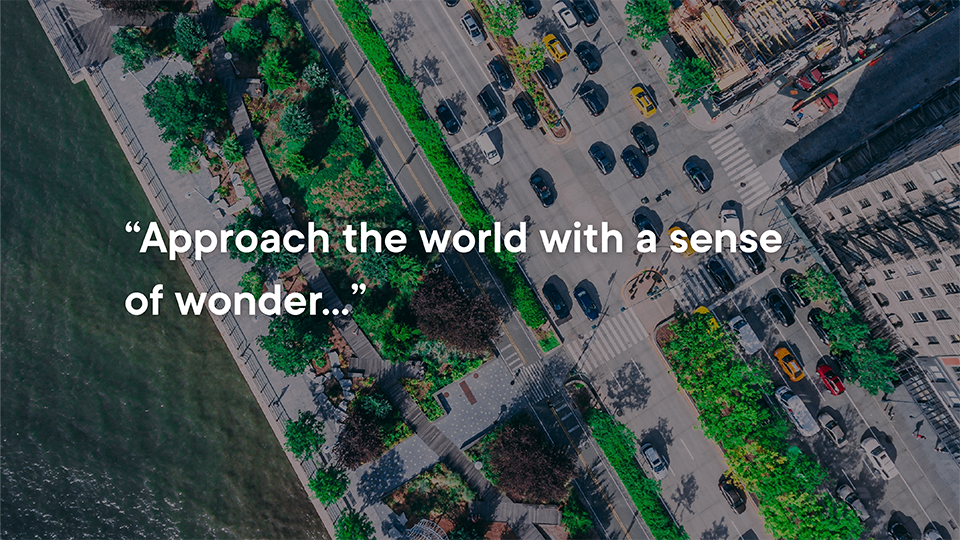
Peter—Don’t be put off if your curiosity leads you to an unsuccessful outcome. My role has a big research aspect to it, and the research process does often have dead ends, but it’s important not to let that dampen your curiosity.
Satish—I would say talk to people, ask stupid questions at talks, and think—a vastly underappreciated facility of our minds. I respect being open to learning something more than trying to hide one’s ignorance.
Dara—Ask a lot of questions! Some folks are shy or nervous to ask questions, because they don’t want to look uninformed. But sometimes, admitting that you don’t know something can actually be a great strength. Keep learning! Continuing your education is a great way to nurture curiosity.
Learn more
Curious about working at Two Sigma? Visit our Careers page to explore the company and our open roles.



